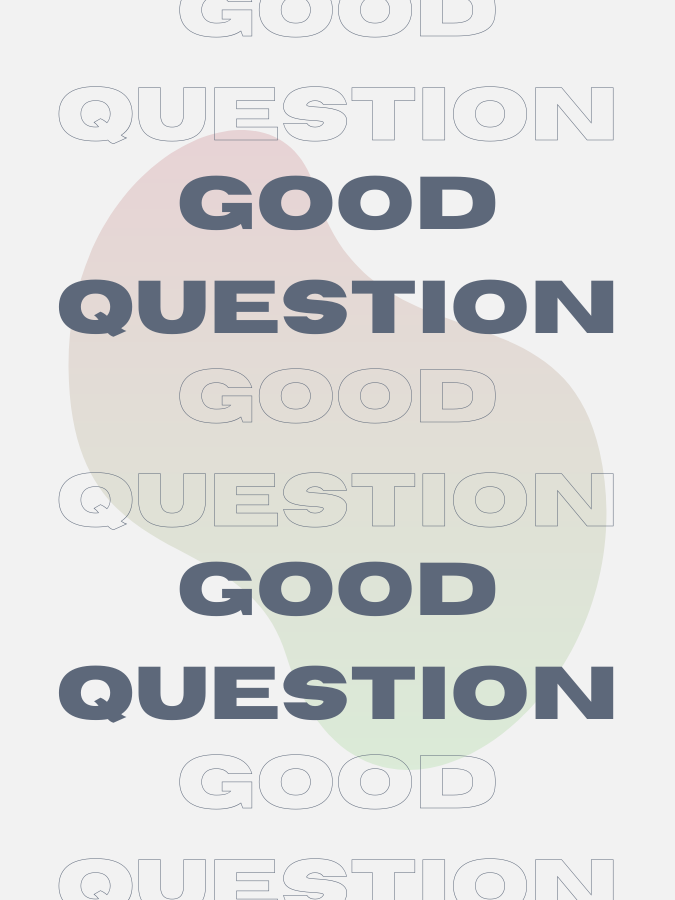
How To Tell Someone They Are Getting In Their Own Way
I’ve noticed my friend exhibits some toxic practices in her romantic relationships, then she wants advice on when things fall apart. How do you suggest or gently tell someone you care about that they might be the “problem”?
This is a hard yet relatable question. It seems you care deeply about the wellbeing of your friend, as well as the relationship you share. I hope some of these tips offer you strength and guidance for approaching what surely feels like a daunting conversation.
“Trust has been established, and an invitation extended. That consent is essential.”
When it comes to offering a loved one advice, I’ve always found it helpful first to place myself in the other person’s position. I think about how I would want to feel if I was on the receiving end. Ultimately, everyone wants to feel safe when receiving hard advice. While critique is never a “feel good” experience, the method in which it’s delivered matters greatly—as does the messenger.
And I want to emphasize that before delving further. Because, as the messenger, you are not giving unwanted advice to a stranger. This person is your friend, and they have asked your opinion. Trust has been established, and an invitation extended. That consent is essential.
Now, for how to actually have the conversation. These communication techniques can help guide your words and keep the discussion feeling safe and honest.
1. Start by setting a time and date for the conversation
I wouldn’t recommend springing the conversation on her, but instead, wait until the timing feels right—perhaps when she next asks for advice about her relationship. If you feel like she’d rather you initiate the discussion sooner, consider extending an invitation so she can decide when she’d like to talk.
It can be as simple as a text or call: “You recently asked me for advice about your relationships, and I’d love to share a few thoughts with you. Is there a good time we can have a conversation?”
Of course, you know your friend best, so if you think this type of note may make her anxious, I’d wait until the conversation feels organic. Otherwise, a heads up may be appreciated. Allowing people to prepare themselves emotionally can offer a sense of control in what may feel like an incredibly vulnerable moment. It will also give you time to think through what you want to say and how you want to say it.
2. Lay the ground rules from the start
Whenever I have a challenging conversation with a loved one, I like to start by setting mutual ground rules. This is to remind all parties why we’re there and that we ultimately care for one another. Ground rules are also helpful if the conversation goes in an unexpected direction. We can always come back to our intentions if one of us becomes defensive.
Here are a few examples of how I might start the conversation:
-
“I love you, and this relationship means the world to me. Please know that everything I say is rooted in love and because I want the very best for you.”
-
“I hope that we can have an honest conversation where you feel seen, heard, and validated in your experiences.”
-
“I’m offering my perspective as your friend, but it is in no way a judgment of character.”
3. Choose neutral language
The best communication advice I’ve ever received is to avoid making accusations in conversations. It’s easy to point fingers with our words, but this can hurt the recipient and is a sure way to cause tension.
When talking with your friend, ensure she knows that she’s not a problem. Someone who practices a few toxic behaviors isn’t always necessarily a fully toxic person.
Here’s an example of how to reframe a potentially harmful phrase. Notice how I remove any accusation language, as well as personal pronouns. The sentence also shifts from accusation to question.
Accusation: “I think you may be the problem in the relationship.”
Question: “Is it possible there are toxic patterns that are causing harm to the relationship?”
4. Ask open-ended questions
Additionally, remember to include your friend in the conversation. This is her discovery process, and you’re simply trying to help her figure out what needs to change. Sometimes when we ask others for feedback, we really just need someone to listen as we sort through our thoughts. Because if we’re honest with ourselves, we usually know what we need to do. Perhaps your friend is even aware of her harmful behavior already. Your questions may help her admit her behavior to herself and see the way forward.
Here are some open-ended questions to consider:
For example:
-
“What do you think needs to change in your relationships for success?”
-
“Are there any patterns you notice in your relationships that seem damaging?”
-
“What would you have done differently in your last relationship?”
5. Offer practical feedback (if they welcome it)
Finally, consider offering practical tools as part of your advice. There are numerous experts out there with excellent tips for creating healthy relationships. Of course, this will be unique to each conversation, but if that seems like something your friend would like, it may prove useful.
Either way, we don’t want to offer advice and then leave it at that. Your friend will be feeling vulnerable and perhaps even hurt. Turning the conversation towards growth (this is where the questions are helpful) and next steps can shift the tone. Podcasts, books, love languages, and even therapy are all practical and productive suggestions.
6. Remind your friend you care for them, and check back in
Remember that we can’t control how people respond. After the conversation, your friend may be grateful for your honest advice, or she may need some space to process everything. If that’s the case, give her the distance she needs while also reminding her that you love her and only want what’s best.
Honestly isn’t always easy, especially when we fear hurting somebody we care about. But, as you’ve suggested, we can choose to approach these moments with warmth and tenderness. By maintaining an open dialogue with our friends, we can create trust a nd help our relationships flourish.
Wishing the very best to you and your friend. xx
“By maintaining an open dialogue with our friends, we can create trust and help our relationships flourish. ”
Read more Good Questions here. Have something on your mind? Click the button below 👇 ✨
RELATED READING
Kayti Christian (she/her) is an Editor at The Good Trade. She has a Master’s in Nonfiction Writing from the University of London and is the creator of Feelings Not Aside, a newsletter for enneagram 4s and other sensitive-identifying people. Outside of writing, she loves hiking, reading memoir, and the Oxford comma.

